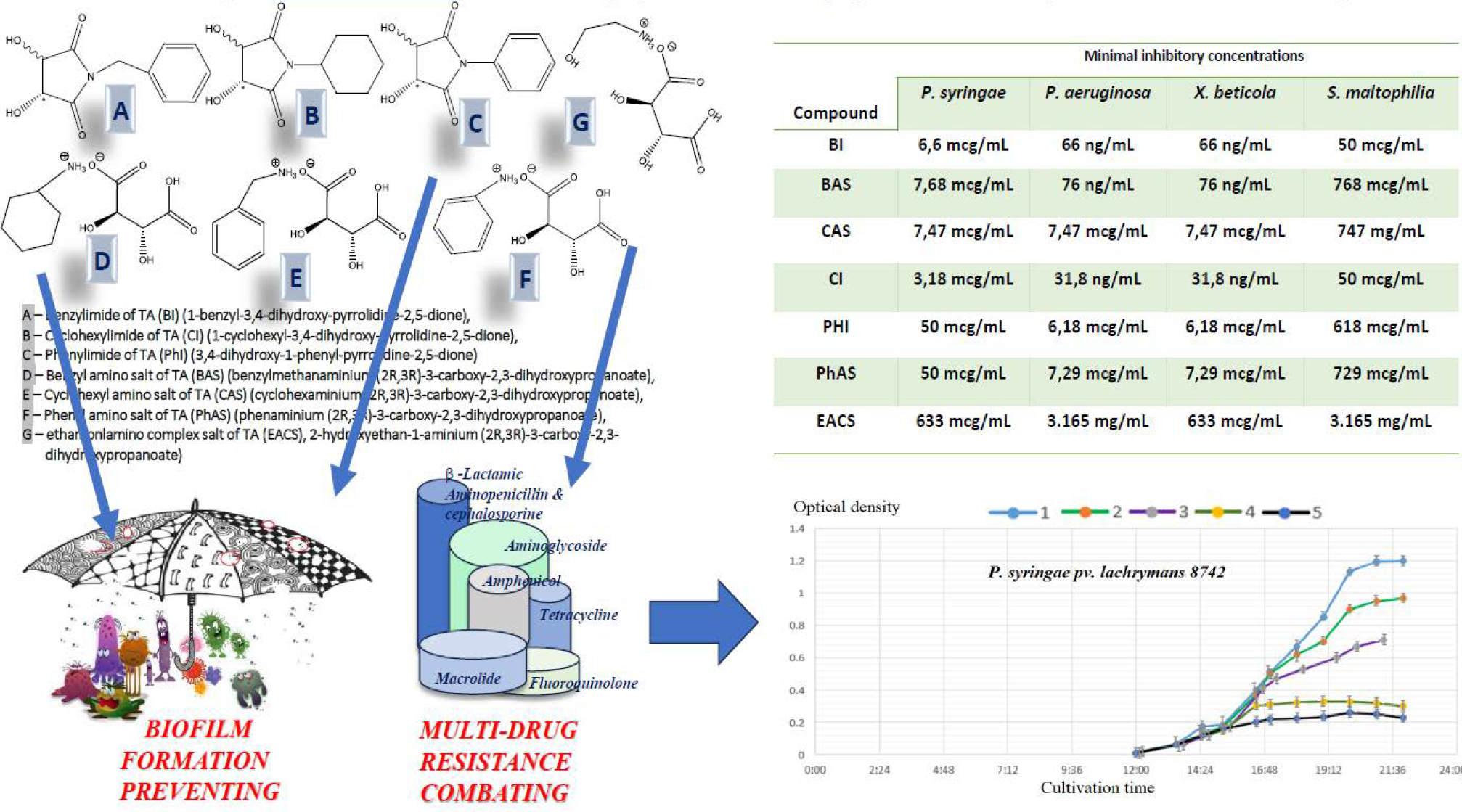Tartaric acid new derivatives as prospective and safe alternative to antimicrobials for food products packing
DOI:
https://doi.org/10.31989/ffhd.v14i1.1195Abstract
Introduction: Multi-drug resistance of pathogens and food spoilage bacteria is one of the most prevalent problems in contemporary science because the microbial adaptation potential is permanently being stimulated by the excessive antibiotic usage by mankind. In this research, seven new derivatives of tartaric acid (TA) were studied. Their high activity against the multi-drug resistant bacteria and the biodegradation potential by soil microflora was demonstrated.
Objective: Based on multiple literature data about aldaric acids antimicrobial properties, for combating pan-drug and especially multi-drug resistant pathogenic microbes, natural L-tartaric acid was target-derivatized by cyclohexyl-, phenyl-, benzyl- and ethanolamine- functional groups into complex amino salts and cyclic imides, which have demonstrated the significant bactericidal and bacteriostatic activity against the spoilage agent bacteria, as well as phytopathogenic and human opportunistic pathogens.
Results: In vitro analyses of TA ethanolamine- benzyl-, cyclohexyl- and phenyl- imides and complex amino salts have shown that the mentioned substances are highly active agents for combating multi-drug resistant Gram-positive and Gram-negative pathogens and food spoilage microbes, such as: Pseudomonas aeruginosa, Stenotrophomonas maltophilia, Klebsiella pneumonia, Salmonella enteritidis, Staphylococcus aureus, etc. These compounds are biodegradable by P. chlororaphis group non-pathogenic bacteria and their resistance is ensured by genes of nucleoid as well as are not transmitted by plasmids. In silico analyses have demonstrated their alternative mechanism of action.
Conclusions: The results suggest that TA new derivatives can be potentially recommended as safe alternative antimicrobials for food packaging.

Keywords: tartaric acid imides, tartaric acid complex aminosalts, spoilage microorganisms, antimicrobial activity, multi-drug resistance.
Downloads
Published
Issue
Section
License
Authors retain the copyright of their articles and grant the Functional Food Center (FFC) and its journals the right of first publication under the terms of the Creative Commons Attribution 4.0 International License.
This license permits unrestricted use, distribution, and reproduction in any medium, including commercial use, provided the original author(s) and source are properly credited. Authors may post and share their published work freely, provided that the original publication in this journal is acknowledged.
By submitting to this journal, authors confirm that their manuscripts are original, not under consideration elsewhere, and that they hold the necessary rights to grant this license. The Functional Food Center encourages open scientific exchange and allows derivative and extended works, provided attribution to the original publication is maintained.